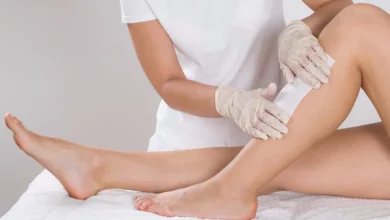How To Start A Lucrative Charcuterie Board Business and Make Money
In this article, I will be highlighting an in-depth analysis of how to start a charcuterie board business even if you are not in this particular industry. One of the goals of an entrepreneur is to invest time and money into a business that has the potential of making a profit and this is where the charcuterie business comes in.
Some people actually have the talent for arranging items but they probably do not have knowledge of how to utilize this great opportunity for generating passive income and growing into a very huge business. You can put together delicious boards for the host to feed their guests and make use of this.
A lot of brand-new charcuterie business opportunities have been popping up for decades now. I think you are definitely missing out on these great opportunities if you decide not to venture into a business like this.
Meanwhile, due to the productivity and profitability of this business, I’ve decided to bring to you particular well-researched information you need to check out if you want to learn how to start a charcuterie board business and make a lot of profit. I believe that’s why you are here in the first instance.
What Is Charcuterie Business All About?
This particular section of the article is dedicated to those who just come across the word “Charcuterie” and really have no clue what this is all about. To simplify this term for you, Charcuterie Business is all about the arrangements of various delicacies in such a way that a customer will be enticed to make a purchase.
However, charcuterie basically refers to the display of various meat products, cheese, cured meats, fruit, and vegetables on a board. You get yourself engaged by presenting this assortment of food on a tray, traditional board, or a slate to your customers.
The typical medium of arrangements is what attracts your customer to your brand and you obviously make money in return. What a wonderful business to venture into.
Furthermore, I’m going deep in order to add to your understanding of this term. You need to be aware that the word “Charcuterie” is a French term that simply refers to the items that were manufactured by butchers.
The following section of the article should prove to you why you should start this business and details on how to start a charcuterie business.
Why Should You Start A Charcuterie Business?
Before starting to plan how to establish a charcuterie board business, an entrepreneur should be able to know why he or she should venture into a business like this. Whether or not there are some disadvantages and advantages you need to be aware of.
The following reasons are why I think it’s kinda profitable to start a charcuterie board business regardless of your location.
- The charcuterie board business is very lucrative alongside the advantage of making a lot of profit.
- The business start-up cost isn’t as massive as an entrepreneur should be able to begin even with small capital. Although, it might eventually depend on your plans and budgets.
- The charcuterie board business does not require intense market research to begin. This is obviously because the business specializes in foods, its offers, and arrangements which have widely gained popularity in recent times.
How Does One Start A Charcuterie Business?
A charcuterie business requires setting up a personalized charcuterie at a gathering, party, or event center. If you have the skills and experience to put together a charcuterie board, you will be able to learn how to start a charcuterie board business in these step-by-step guides.
Here is the list of procedures to take when you’re starting out in this field.
- Identify Your Niche
- Make A Proper Plan
- Get A Food And Drink License
- Get A License And Certificate
- Find A Charcuterie Board Business Name
Identify Your Niche
For you to be successful in the long run, you need to choose a specific niche to specialize in. Attempting to be engaged in all sorts of parties, gatherings, weddings and so on would look strenuous at the start and might cost you a lot of money.
You have to narrow your niche and focus on a particular type of gathering. For example, take a look at your competitors, dig out their specializations and choose one out of these that best suits your interest for now.
Then, focus on that by helping your customers arrange tables with charcuterie boards at kids’ birthday parties. This is if children’s birthday parties were your preferred specialization.
Meeting your customer’s needs and offering a kind of board decoration at specific moments is what the charcuterie board business is all about.
Create A Proper Plan
The next important procedure on how to start a charcuterie board business is the creation of a proper plan. You don’t just jump into a business without a plan of what to do, the steps to take, strategies to implement and so many other guidelines.
If you begin a business without a standard plan, you might find it difficult to experience growth in addition to making profits.
Find A Charcuterie Board Business Name
The next step is to find a name that best defines the objective of your business. Make sure the name is really attractive and very easy to remember.
In addition to this, creating a business website makes your brand unique and trusted in the views of your customers.
Although it will cost a certain amount of money to create your personalized website. It also isn’t mandatory since you are just establishing your business.
Get A Food And Drink License
Before you can be allowed to serve alcohol or meals in your location, you need to get a food and alcohol license. This will protect your business from any sort of issues that might occur in the future.
Get A License And Certificate
Having a proper license and permits before starting a charcuterie board business enables you to legally venture into a business like this and be able to sell some charcuterie board products too.
Advertise Your Business
Another very important procedure to take while creating your charcuterie business is to try to reach your target audience by publicizing your charcuterie board business via social media platforms or print media marketing strategies.
How Much Profit Can I Make From Starting A Charcuterie Business?
The amount of profit you stand a chance to make in this kind of business solely depends on your clients and their patronization. Briefly, a small charcuterie board, specifically for a few people, will cost about $25 – $35 compared to other large boards that cost a minimum of $85 – $150.
Imagine the amount of cash you could potentially make on a monthly basis if you have a lot of clients. You can add to your list a display of prepared meats that are paired with fresh vegetables and cheese placed on a plain board.
This will certainly look attractive and drive potential customers to your brand.
Conclusion
Regarding the content of the article that was highlighted above, we discussed what the charcuterie board business is all about, the reasons why you should venture into the business, and other related queries.
In order to briefly summarize the information on how to start a charcuterie board business, take note of the points below.
- First and foremost, create a proper business plan.
- Get a name for your charcuterie board business.
- At least have a little experience before starting this business or take online courses.
- Get your license, and permits and register your business
- Lastly, advertise your business and study your competitors.








